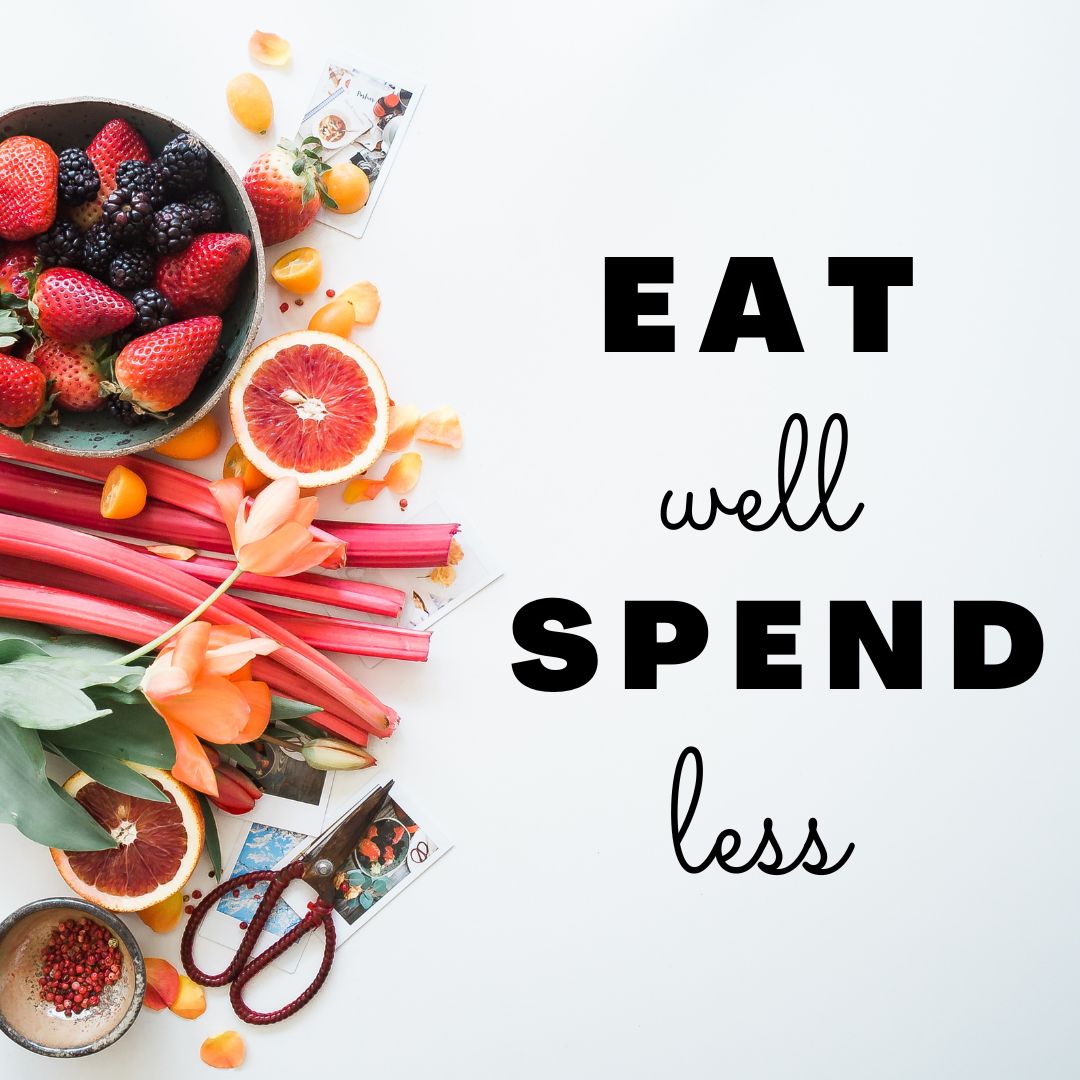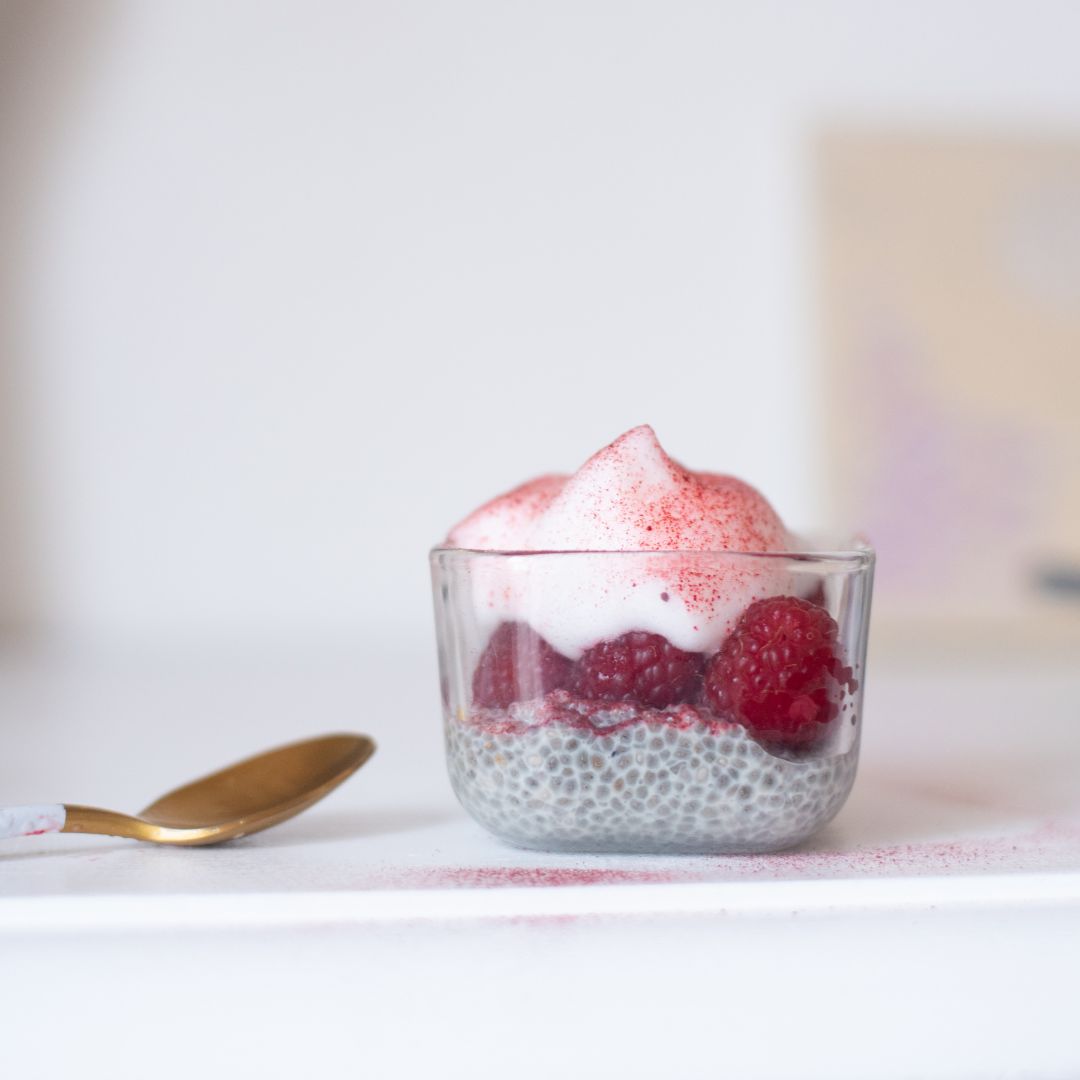
Is self-compassion the key to unlocking your health goals?
In the pursuit of better health, we often focus on the physical aspects – diet, exercise, and sleep – while neglecting a vital component: our emotional wellbeing. You might already appreciate this conceptually but here’s an important question to ponder: how do you treat yourself when you make a mistake, or you don’t reach your goals?
Do you treat yourself with kindness and understanding like you would a friend or do you beat yourself up for your so-called failings? If, like most people, your tendency is to berate yourself, it’s time to bring a little more self-compassion into your life.
It’s good to be kind to yourselves and it can be your greatest ally in reaching your health goals.
“With self-compassion, we give ourselves the same kindness and care we’d give to a good friend.” Kristin Neff, one of the eminent researchers on self-compassion
What is self-compassion?
At its core, self-compassion is the practice of treating yourself with the same kindness and understanding that you offer to others.
It comprises three key components: self-kindness, common humanity, and mindfulness.
It’s different from self-esteem (although this is also important for wellbeing). Instead of relying on self-judgment and comparisons, self-compassion is about self-acceptance and self-care.
The connection between self-compassion and your health
Research shows a profound connection between emotional wellbeing and physical health. High levels of stress, self-criticism, and negative self-talk can hinder your progress towards health goals.
This is where self-compassion steps in. By reducing stress and improving mental health, it lays a strong foundation for positive health behaviours.
Silence your harshest critic - yourself
Imagine the inner critic as a relentless coach who constantly points out your flaws and mistakes. It's time to silence that voice. Recognising self-criticism is the first step.
Pay attention to those moments when you berate yourself for a slip-up.
Then, challenge these thoughts with self-compassion.
Ask yourself: "Would I speak to a friend this way?" Almost always, I suspect the answer will be no.
Start to learn self-kindness
Self-kindness is the heart of self-compassion. Start your day by acknowledging your achievements, no matter how small they might seem.
If you already practise gratitude, it’s not that far away. Instead of reminding yourself of the good things in your life, you are reminding yourself of the good things in you.
Treat yourself with the same warmth you'd offer a loved one. Practice self-care as an act of kindness to your body and mind – eat nourishing foods, get enough rest, and engage in activities that bring you joy.
You’re not in it alone – welcome to ‘common humanity’
You're not alone in your health journey, whatever that is. Common humanity is the understanding that all humans face challenges and imperfections. Connect with others who share similar goals. Share your experiences, both the successes and the setbacks. It's comforting to realise that your struggles are part of the human experience.
It's worth remembering that people love to help, and we often don’t give them that opportunity to provide support. Think of reaching out as something they can feel good about, too.
Stay in the moment
I am a big fan of mindfulness for all sorts of reasons, and it also happens to be a powerful tool when it comes to self-compassion. Mindfulness brings you into the present moment, allowing you to make conscious choices about your health rather than dwell on what should or could have been, which inevitably ends with self-recriminations.
Practice mindfulness through meditation, deep breathing, or simply by being fully engaged in your daily activities. It will enhance your decision-making related to your wellbeing. If you’re new to mindfulness, it can be helpful to start with some guided meditation using smartphone apps like Calm or Headspace.
The point of these guided meditations is not to get really good at doing it, but to make the time to do it daily if you can. It is a ten-minute oasis of calm, and it works best to find a point in your day that you can regularly commit to (even before bed) when you won’t be disturbed. Your mind is bound to wander off part-way through. This is normal so don’t throw in the towel if this happens!
Get started with self-compassion
Set realistic goals. Start small and build from there. Unrealistic expectations can lead to self-criticism.
Track your progress. Keep a journal to monitor your achievements and setbacks. Celebrate every step forward.
Keep a self-compassion diary. Create a journal where you record your self-compassionate thoughts and moments. Reflect on them regularly.
A little word on setbacks…
Setbacks are part of any journey, including your health journey. Instead of viewing them as failures, see them as opportunities for growth. When you slip up, acknowledge it without self-judgment. Remember that self-compassion allows you to learn from setbacks and move forward with resilience.
Self-compassion is not a luxury; it's a fundamental pillar of good health. By treating yourself with the same kindness and understanding you offer to others, you create a positive environment for your physical and mental well-being. Begin your self-compassion journey today, and watch as it transforms your path towards your health goals.
If you struggle to support yourself, why not get in touch and see how I can help you. Just book a call here.

15 Minute Chicken Curry
As a nutritionist, I’m often told by my clients that they don’t have time to cook. And this is a recipe that I love to share with them! Quick, easy and healthy – what’s not to love?
Serves 4
Ingredients:
2 tbsp olive oil
4 x 200g chicken breasts, cut into chunks
2 onion, diced
1 thumb-sized piece of ginger, grated
4 cloves of garlic, crushed
spices: 2 tbsp ground cumin, 3 tsp turmeric, 1 tsp red chilli flakes, 2 tsp ground cinnamon, 2 tsp ground coriander
4 tbsp tomato puree
2 x (400g) can chopped tomatoes
8 tbsp plain yoghurt
2 handfuls of fresh coriander, finely chopped
Method:

Eat to improve your heart health
Many people fear a heart attack. Think of it as the last straw. Heart disease is, in many cases, a lifestyle disease that is avoidable and, with the right focus, you can avoid it, too.
There are some pretty big risk factors (outside of smoking and drinking in excess), and these include being diabetic, having high cholesterol and being overweight.
What I want to talk to you about today is which dietary changes you might start to make from today, to protect your health and that of your loved ones. There’s fantastic news in this regard because a number of huge studies point to diet and lifestyle change being IT when it comes to prevention.
The INTERHEART study, published in the Lancet in 2004, followed 30,000 people in 52 countries. Researchers found that lifestyle changes could prevent at least 90 percent of all heart disease.
This was another big one: the EPIC study in 2009 looked at how 23,000 people adhered to 4 simple behaviours: not smoking, exercising 3.5 hours a week, eating a healthy diet, and maintaining a healthy weight. Sticking to these four behaviours alone seemed to prevent 93% of cases of diabetes, 81% of cases of heart attacks, 50% of cases of strokes, and 36% of cases of all cancers.
A SIMPLE STRATEGY FOR GOOD HEALTH
Of course, everyone is individual, and there is no official ‘single diet’ that all humans should eat. But if there were, this would be it because it handles what the essence of the problem is – overweight and a highly inflammatory internal environment.
Before I dive in with some of the answers, I want to say a little something about fat because chances are, if you’ve heard one thing about staving off a heart attack, it’s ‘cut back on fat’ (and especially the saturated kind).
The success of some low-fat dietary models in weight loss is thought to be more likely due to the simultaneous reduction of sugar, refined carbohydrates and processed foods.
Dietary fat actually turns off fat production in your liver. Unlike carbohydrates and protein, dietary fat does not trigger your pancreas to secrete insulin.
There is one type of fat everyone should avoid, and it’s trans fats, a kind of Frankenstein fat added to food to improve shelf life and mouthfeel of products. One study actually found that the risk of coronary heart disease doubled with each 2 percent increase in calories from trans fats (Iqbal, 2014). Another researcher even concluded: “On a per-calorie basis, trans fats appear to increase the risk of CHD more than any other micronutrient.” (Mozaffarian et al., 2006).
THE REAL VILLIANS…
The real villains in the piece are refined grains and sugar. During processing, refined grains are stripped of the bran and germ, two parts of the grain kernel that contain a wealth of nutrients. The final product is starch with next to no nutritional value, providing little more than carbohydrates and calories. Refined carbohydrates can be found in a wide variety of foods, including white bread, pasta and rice, muffins, cakes, cookies, crackers, and bagels. Unfortunately, these foods make up a pretty good chunk of the modern Western diet and may be linked to a higher risk of heart disease.
One study from China found that a higher carbohydrate intake, mainly from refined grains, was associated with an increased risk of coronary heart disease among 117,366 adults (Yu et al., 2013).
Sugar is one of the main culprits of heart disease. Added sugars from foods like sweets, desserts, juice and soft drinks can spike blood sugar levels, damaging the blood vessels, overloading the liver and increasing the risk of heart disease.
Interestingly, a study from Harvard School of Public Health actually found that participants who drank the highest amount of sugar-sweetened beverages had a 20 percent higher relative risk of developing coronary heart disease than those who drank the lowest amount (de Koning et al., 2012).
WHAT THIS MEANS IS …
A lower carbohydrate diet is recommended to balance blood sugar and therefore reduce insulin and blood glucose levels. Elevated insulin is a major risk factor for heart disease and promotes inflammation. You’re also likely will lose weight on a blood sugar balancing diet, and that in itself will reduce the risk for many chronic diseases, including heart disease and high blood pressure.
Do you notice a trend in my diet tips? What’s to focus on is real food. What you would benefit from decreasing is the processed stuff most people kid themselves is OK for them to eat. Truly, your body doesn't know what’s going on when you shovel in heavily processed or chemically altered foods.
Eating this way - sometimes referred to as a low GL (glycaemic load) diet - will also help, providing your body with a steady supply of energy through the day, rather than a high-octane rollercoaster of energy spikes and troughs.
Putting the food work into your life alongside the commitment to regularly de-stress, move your body and prioritise sleep is not always easy to do on your own. It is always helpful to have someone – like me – in the wings helping you fit what you already know about eating well into your life and keeping you motivated to follow your plan for long enough that you really see a shift in your health. And if you would like some support - why not book in a call with me here?

How to eat well ##plus## spend less
Eating food you have cooked or prepared at home is healthier for you. It is also considerably cheaper. The key to this is planning. You’ve probably heard the saying ‘failing to plan is planning to fail’. Without a weekly food plan, it will be pure luck if you end up with the right foods in the fridge or cupboard. And, without planning your time, you won’t always make the time to enjoy breakfast or make that lunch. You could be saving a LOT of money each and every week by following these tips.
EXERCISE 1: HOW MUCH ARE YOU REALLY (OVER)SPENDING?
Be honest with yourself about your spending and shopping habits. That starts with looking into how much you spend each week on take-out coffee, croissants, and other breakfasts; lunchtime salads, soups and sandwiches; snacks and other food treats; and ready meals, takeaways or last-minute meals out.
Make a note every time you buy something (not the main food shop) to eat out of the house. Do this for a week, then multiply by 4 to give you an approximate monthly total.
Log into your banking app (or go online) and make a note of how much you spent over the last month on food.
Add the two figures together. This gives you your total for how much you are spending on food each month. I suspect you will be shocked. Most people are.
Commit to saving a certain amount each week or month. Decide what that is. Commit to it and write it down. What will you do with that extra money? Where can you economise?
EXERCISE 2: PLAN YOUR PLANNING
Become a planning ninja. The thing about planning is that you need to actually plan to plan. It’s easy to get derailed by events, situations, relationships and tasks that insert themselves into our already busy lives.
Choose a time when you know you will be free every week to plan your meals – breakfasts, lunches and dinners. Ideally plan midweek for the following week. Put a reminder alarm on your phone. If this planning job doesn’t get done, you will have no choice but to shop on a day-to-day basis, which is much more expensive.
EXERCISE 3: AUDIT WHAT YOU HAVE
Turn these meal plans into a shopping list.
Also create a master list of what you already have in your freezer, fridge and cupboards.
Cross anything you already have off your shopping list.
EXERCISE 4: SHOP YOUR PLAN
As an experiment, spend at least one week only allowing yourself to buy what is on your shopping list. No extras! The planning and shopping discipline may take a little time to get used to, but it is worth persevering.
Off-list shopping and impulse buys are the biggest enemy for anyone wanting to keep to a budget. Do not go to the supermarket hungry. You are more likely to shop off-list when you do.
EXERCISE 5: GET CREATIVE
A huge amount of food is thrown away, because we’re not sure what to do with leftovers. Make a commitment to using yours and prepare to save money. There is a bank of resources online to help you find easy recipe suggestions for pretty much anything you may have lurking in the fridge.
This will feel uncomfortable at first. You will be making some meals you have definitely not tried before!
Try the following:
Tesco Meal Planner Left Over Tool (https://realfood.tesco.com/meal-planner/leftover-tool.html)
All Recipes Leftovers Tool (http://allrecipes.co.uk/recipes/tag-476/leftovers-recipes.aspx)
Love Food Hate Waste (https://www.lovefoodhatewaste.com/recipes/?gclid=EAIaIQobChMIoqb6tqnl3QIVA7ftCh2Cjg_eEAAYASAAEgK12_D_BwE)
GOLDEN RULES OF HEALTHY EATING ON A BUDGET
1 INCLUDE PROTEIN AT EVERY MEAL AND SNACK
Protein keeps energy levels stable and is essential for the body’s growth and repair, and healthy skin and nails. Protein is found in meat and poultry, fish, seafood, eggs, lentils, beans, pulses (like chickpeas), quinoa, nuts and seeds. Protein should make up a quarter of your meal (about the size of a clenched fist). Many people do not have protein-based breakfasts. How can you change yours?
MONEY-SAVING TIP: the cheapest sources of protein are vegetarian sources, like beans and lentils. Consider going meat-free one or two days a week. Eggs sold as ‘mixed sizes’ are cheaper than buying all M or L.
2 EAT PLENTY OF FIBRE
That means lots of vegetables – likely more than you are currently eating. The recommendation is 5 portions of vegetables and 2 portions of fruit (ideally low sugar fruit like berries, apples, pears, plums – anything grown in the UK) a day. Fibre keeps energy levels constant, balances your hormones, fills you up, keeps you regular and those fruit and veg contain many immune-boosting plant chemicals. Aim to eat a rainbow of colours over the course of the week.
MONEY-SAVING TIP: Greengrocers are often the cheapest places to buy your veg. Also consider basing meals around special supermarket deals (example Aldi’s Super 6), and don’t rule out the basics and essentials ranges of veg (usually just means they are not regular shapes and sizes). Don’t rule out frozen veg either. It’s cheap, often frozen soon after picking so it’s very fresh, and offers the ultimate convenience. And you are likely to waste less.
3 CHOOSE HEALTHY FATS
Eating fat doesn’t make you gain fat or otherwise put on weight, but some fats are healthier than others. The body loves omega 3 fats, which boost mood and support the stress response, and reduce inflammation. They are found in oily fish (salmon, trout, halibut, cod, fresh tuna, mackerel, sardines), flaxseeds, chia seeds, hemp seeds and walnuts. Other healthy sources of fat are avocados, olive oil, coconut oil, nuts and seeds.
MONEY-SAVING TIP: Frozen fish is a far cheaper option than refrigerated. Don’t be fooled into thinking it’s inferior. Often supermarket ‘fishmonger’ counter fish has been frozen.
4 THINK CAREFULLY ABOUT STARCHY ‘CARBS’
Many diets rely heavily on white, pasta, bread, rice and potatoes, but these (especially when eaten without protein) can unbalance your blood sugar levels and cause you to store fat. Swap to healthier wholegrain alternatives; brown rice, wholemeal pasta and bread, and sweet potatoes, and ensure this element takes up no more than a quarter of your meal.
MONEY-SAVING TIP: Many people bulk up meals with starch, especially on a budget. Your body will love you for bulking meals up with veg instead. Eating large portions of starchy foods will have you craving more food than if you had more modest portions.
5 CUT SUGAR
Most people have an understanding that sugar is not good for them. Eating sugary food is like a treadmill, with one biscuit creating the need for the next. Sugar creates a blood sugar or energy imbalance, fuels inflammation in the body, and makes you put on weight.
MONEY-SAVING TIP: Consider that the more sugar you eat, the more you need to eat. Sugary ‘treats’ soon become a three times a day habit. Depending what you’re snacking on, cutting it out (or cutting down) could save several ££ each day.
Don't hesitate to get in touch with me if you'd like to know more about meal planning and general health - you can book a call with me here.

Pomegranate and Pistachio Chia Pudding
This is a very easy breakfast to make! It’s protein-rich and full of gorgeous antioxidants. If you double or triple the proportions, you can make 3 at a time. Pop them in the fridge and they will keep up to 3 days. Perfect for batch cooking.
Ingredients:
3 tbsp chia seeds
180ml coconut or almond milk
(unsweetened)
1 tsp vanilla extract
40g pomegranate seeds
1 tbsp pistachios, chopped
Method:
1. In a small bowl, combine chia seeds, vanilla, and milk
2. Cover and refrigerate for 4 hours (or overnight, if possible)
3. When ready to serve, stir the chia mixture, then layer in a glass with pomegranate seeds
4. Top with pistachios
5. Enjoy!

How to Break Through a Plateau
When you have a specific health goal and feel you are putting in the work, it’s tough when you don’t see the changes you feel you deserve. It’s tempting to give up, but here’s what to do instead.
If progress is disappointing, it’s time to check in with how you feel. Progress is not just a number on the scales and, in many cases, the scales can be misleading. If your goal isn’t just weight loss, a temporary stall in progress can be just as frustrating, with symptoms seeming to vanish one week, but reappear the next. Progress is rarely as straightforward as we think.
In this blog, I’ll be focussing on weight loss plateaus but you can add in your own situation.
What is a weight loss plateau?
A weight loss plateau refers to a phase in your weight loss journey where progress comes to a temporary halt despite your continued efforts. It can be both frustrating and demotivating.
Understanding the dynamics of why this happens is crucial for developing effective strategies to overcome them.
Common causes
Metabolic adaptation: One primary cause of weight loss plateaus is the body's ability to adapt to changes in calorie intake and expenditure. As you lose weight, your metabolic rate may decrease, meaning your body burns fewer calories at rest. This adaptive response can make it challenging to sustain the initial rate of weight loss.
Psychological factors: Psychological aspects play a significant role in weight management. Stress, emotional eating, and other mental health factors can contribute to plateaus. For instance, heightened stress levels can lead to hormonal imbalances that affect metabolism and appetite, hindering weight loss progress. Don't underestimate the power of stress to impact every aspect of your health.
Inconsistent action: It’s easy to be keen and compliant when you first start your programme but, over time, bad habits and inconsistencies can creep in, whether that’s more treat foods, more glasses of wine, or irregular workout patterns.
It’s not simply the number on the scales that can show up.
Lack of change in measurements: A plateau often extends beyond weight loss alone, affecting overall body composition and shape. This might mean measurements such as waist circumference, hip circumference, and other body dimensions stall too.
Emotional and psychological indicators: Forget about the tell-tell signs just being physical. You might also experience heightened frustration, demotivation, or a sense of being stuck in your journey. Emotional eating patterns may also emerge as a response to the perceived lack of progress, further complicating the weight loss process.
Plateaus vary from person to person
Weight loss plateaus are not one-size-fits-all – just like your food plan! They manifest differently for everyone. Factors such as age, gender, genetics, and overall health can influence the nature and duration of plateaus. Some people may experience a brief slowdown in weight loss, while others might encounter a more prolonged and stubborn plateau.
Here are some thoughts for those weeks when things don’t go to plan for whatever the reason.
Quick wins
The basic advice is to keep going. Plateaus are very common and often my clients trust the process and soon things start moving in the right direction again.
In the short term, you can try one of these little boosters:
One of the most important things you can do is to focus on what has gone well. Ask yourself, what am I pleased with that has gone well this week? What other improvements have you noticed?
Keep your eye on the prize. One of the things I’m keen to do as a coach is to help my clients work out why change is important for them. This helps keep focus when a plateau happens. If you’d like to know more about the support I can give you, why not book in a free call here?
![]()
Please get in touch and find out more - I offer a free 30-minute exploratory call.